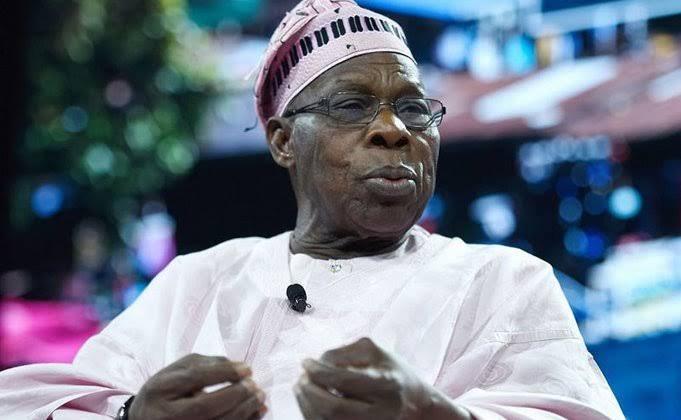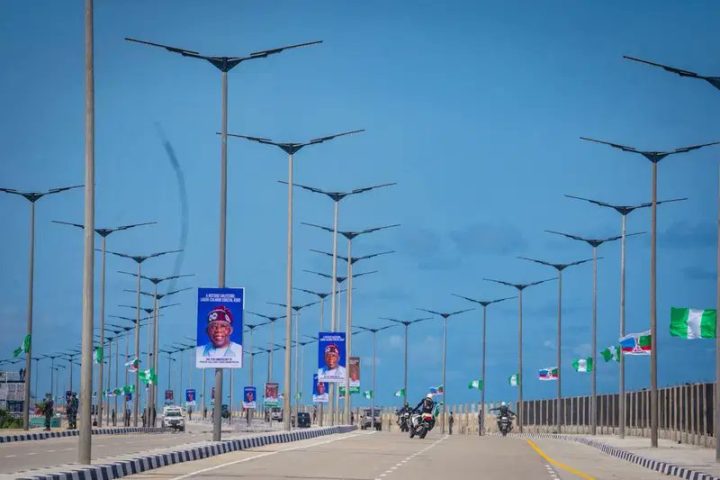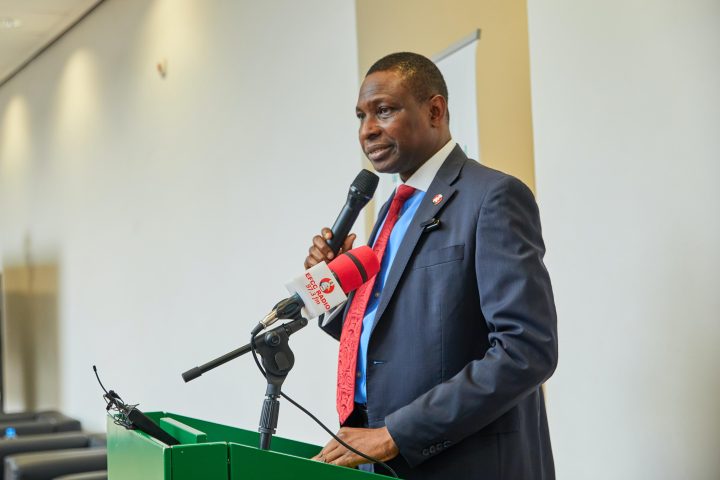Former president, Chief Olusegun Obasanjo, has stated that the success recorded by Geometric Power Limited in delivering electricity services to some parts of the Federal Capital Territory Abuja resulted in the birth of the Aba Integrated Power Project in 2004.
The two-term president of Nigeria made this known last week during the commissioning of the 188 mega watts Aba power plant built by Geometric Power Limited. The facility was commissioned by President Bola Tinubu, who was represented by the Vice President, Kashim Shettima.
Join our WhatsApp ChannelObasanjo, who was represented at the event by his son, Dr Seun Obasanjo, went down memory lane, highlighting the role his administration had played when Geometric Power was established back in 2000, becoming the first private power firm in Nigeria that built a 22MW Emergency Power Plant in Abuja to ensure reliable delivery of 15MW to provide electricity to some critical parts of the Federal Capital Territory during the period.
READ ALSO: Aba Power Begins Commercial Operations Of Turbines Weekend
Part of his speech read: “ I have heard a lot of reasonable members of our society claim that the Geometric Power Group is a product of the far-reaching reforms that our administration decided to carry out in the national economy after the 2003 general election. Geometric Power is, indeed, part of the product of that reform programme, but, in reality, it preceded the 2003 election. Our administration in 2000 wanted to build an emergency power plant to provide power to the Central District of Abuja pending the completion of the Shiroro- Abuja power line by the National Electric Power Authority (NEPA). Two companies were final bidders for the 30MW plant after repetitive bids. One was Scottish and one Nigerian.
“The Nigerian company, Geometric Power, was led by Professor Bart Nnaji. I asked the then Minister of Power to share the project equally among the two companies. Geometric Power built a 22MW Emergency Power Plant in Abuja to ensure reliable delivery of the required 15MW to provide electricity to some critical parts of the Federal Capital Territory during the period. We felt it was in the overriding national interest to allow this team of young Nigerians to showcase their knowledge and skills rather than award the whole contract to a foreign firm.
“This gave birth to Geometric Power becoming the first indigenous Nigerian private power company. I am happy these Nigerians did a very good job. There was no power failure in the Presidential Villa, the NNPC Corporate Headquarters, the Central Bank of Nigeria Headquarters, the Federal Secretariat, and the entire Abuja Central Business District for the period they supplied electricity to these places.
“The success of the 22MW Abuja Emergency Power Plant resulted in the birth, in 2004, of the 188 MW Geometric Power plant and the Aba Power Distribution Company. The success rekindled our belief that the private sector, not the government, should play a commanding role in the power sector. We started with Aba simply because of its reputation as the home of indigenous industrialization.
“Given that the existing law invested in the Federal Government the sole power of electricity generation, transmission, and distribution, we reached a special agreement with Geometric Power to carve out Aba and the environs from the national electricity arrangement and make it operate as a kind of island. We thought that the success of this business model would be recommended across the country. Hence, the Electric Power Sector Reform Act of 2005 made the electricity business in Nigeria private-sector driven.”
The former president said the the administration that came after his tenure had during privatization of Power Holding Company of Nigeria (PHCN) to succesor companies, failed to respect the Federal Government’s MOU with Geometric Power in 2004, with substantive agreement in 2005, to make Aba a Ring-fenced Area.”
According to him, this action led to loss of many years in the development of the Aba Ring-fenced Area.
With all these having become history, Aba people, he said, “is now primed to enjoy reliable, quality, and affordable electricity.”
Obasanjo emphasised that having a steady supply of electricity could help reduce the cost of doing business, leading to producing cheaper goods and services that help the economy to improve.
“Quality and regular power supply will, by extension, benefit all Nigerians, not just the people and businesses in Aba. Constant power supply can reduce the cost of doing business in Aba significantly; this will translate to cheaper products and services,” he added.
He congratulated the founder and chairman of Geometric Power, Prof. Bart Nnaji, for his doggedness and perseverance that saw the successful completion of the Aba Integrated Power Project 20 years after it was birthed.
The facility is billed to serve nine local government areas under the service of the Aba ring-fenced area in Abia State.
Obasanjo expressed hope that the 188MW gas-generating plant will contribute to living and business experiences in Aba.
He concluded his speech by urging that the example of Aba power project be followed in developing power facilities in other cities and business areas in other parts of the country.
Victor Ezeja is a passionate journalist with seven years of experience writing on economy, politics and energy. He holds a Master's degree in Mass Communication.


















Follow Us